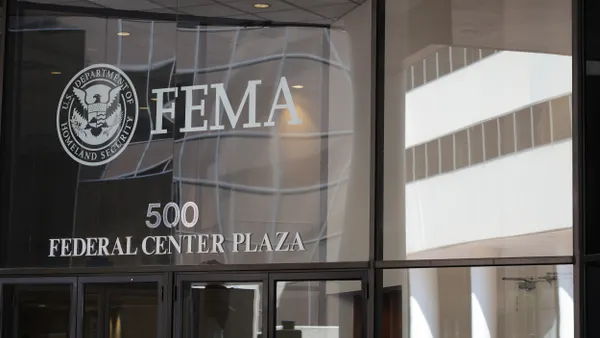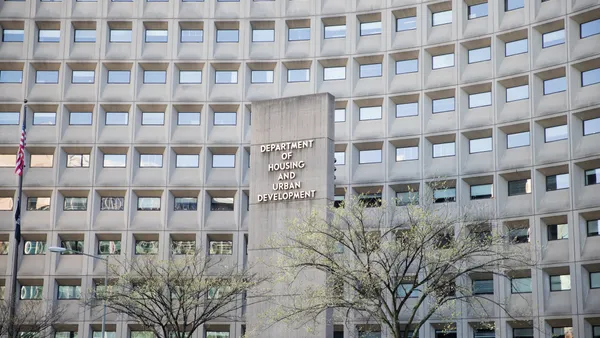Dive Brief:
- Minneapolis reports that 43% of eligible single-family homes and small multi-unit buildings have opted in to curbside organics collection since it became available citywide in July 2016. This equals more than 45,000 households, and has surpassed the city's original expectation of 40% participation, as reported by the Star Tribune.
- More than 4,000 tons of organic material have been collected over the past year, however prior analysis had estimated that participation at this level would be yielding closer to 8,000 tons of material per year.
- All material is being taken to Specialized Environmental Technologies in nearby Rosemount, MN for composting in a windrow system. Contamination rates, like volumes, have also been lower than expected. The facility will take material with up to 10% contamination and the residential material from Minneapolis has only had an average of 0.5% contamination, as reported by Southwest Journal.
Dive Insight:
Mayor Betsy Hodges first announced plans for this program in 2014 and it was initially introduced in 2015. The program is being funded through a slight increase in residents' monthly bills, regardless of their participation. The city's wide-ranging educational efforts appear to be paying off based on the participation rates, though officials think some residents are still hesitant about diverting the full list of accepted materials beyond standard fruits and vegetables. Unlike some other cities with curbside organics collection, Minneapolis doesn't allow yard waste to be co-collected with food scraps.
According to the most recent data, Minneapolis had a 36% residential diversion rate in 2015 and this organics push is part of a larger effort in Hennepin County to boost diversion. Organics collection efforts in Minneapolis and other local communities are being driven in part by a state goal for metropolitan counties to reach 75% diversion by 2030. Hennepin County recently announced that it would dedicate half of all state recycling funds to organics programs to help maximize these efforts.
Curbside organics collection continues to grow in popularity, with cities such as Boise joining the club recently and others such as Austin working to expand the number of households they cover. The practice is becoming more widespread in major West Coast cities, while gaining attention in the Northeast where disposal tip fees are higher. Yet a number of other cities that are interested in the concept have still decided it's not economically viable for them to take on until costs come down. The progress in Minneapolis is an example of what's possible when all of the right factors align — and a reminder that it may take a state or county directive to kick-start the process.












